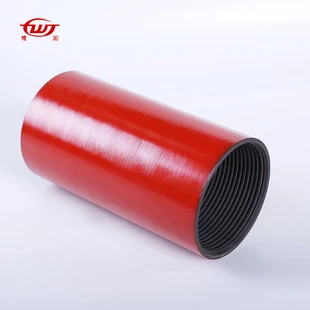- Afrikaans
- Albanian
- Amharic
- Arabic
- Armenian
- Azerbaijani
- Basque
- Belarusian
- Bengali
- Bosnian
- Bulgarian
- Catalan
- Cebuano
- Corsican
- Croatian
- Czech
- Danish
- Dutch
- English
- Esperanto
- Estonian
- Finnish
- French
- Frisian
- Galician
- Georgian
- German
- Greek
- Gujarati
- Haitian Creole
- hausa
- hawaiian
- Hebrew
- Hindi
- Miao
- Hungarian
- Icelandic
- igbo
- Indonesian
- irish
- Italian
- Japanese
- Javanese
- Kannada
- kazakh
- Khmer
- Rwandese
- Korean
- Kurdish
- Kyrgyz
- Lao
- Latin
- Latvian
- Lithuanian
- Luxembourgish
- Macedonian
- Malgashi
- Malay
- Malayalam
- Maltese
- Maori
- Marathi
- Mongolian
- Myanmar
- Nepali
- Norwegian
- Norwegian
- Occitan
- Pashto
- Persian
- Polish
- Portuguese
- Punjabi
- Romanian
- Russian
- Samoan
- Scottish Gaelic
- Serbian
- Sesotho
- Shona
- Sindhi
- Sinhala
- Slovak
- Slovenian
- Somali
- Spanish
- Sundanese
- Swahili
- Swedish
- Tagalog
- Tajik
- Tamil
- Tatar
- Telugu
- Thai
- Turkish
- Turkmen
- Ukrainian
- Urdu
- Uighur
- Uzbek
- Vietnamese
- Welsh
- Bantu
- Yiddish
- Yoruba
- Zulu
Exploring the Role and Function of Tubing Collars in Oil and Gas Operations
Understanding Tubing Collars Importance and Functionality in Oil and Gas Operations
In the dynamic world of oil and gas extraction, tubing collars are critical components that play a vital role in ensuring the efficiency and safety of drilling operations. As the industry continues to evolve, understanding the functionality and significance of tubing collars becomes essential for engineers and technicians involved in well completion and production stages.
What are Tubing Collars?
Tubing collars are specialized connectors used to join sections of tubing in oil and gas wells. They are typically found in the completion phase of a well, where they serve as transition points between different lengths of tubing or between the tubing and other equipment, such as packers or downhole tools. Tubing collars come in various designs and materials, tailored to meet specific operational requirements, environmental conditions, and pressures encountered in the field.
Types of Tubing Collars
There are several types of tubing collars, each serving particular purposes
1. Standard Collars These are commonly used to connect tubing strings and allow for a seamless flow of fluids from the wellbore to the surface.
2. Integral Collars These are designed as part of the tubing itself, providing stability and strength by eliminating the need for additional connections.
3. Screwed Collars These collars have threaded ends that screw into the tubing, offering secure connections that can be easily disassembled if maintenance or modifications are necessary.
4. Subsea Collars Built to withstand the extreme pressures and conditions found in underwater settings, subsea collars are engineered for high integrity and reliability.
Functions of Tubing Collars
tubing collar

The primary functions of tubing collars in oil and gas operations include
- Connection The most fundamental role of tubing collars is to connect various sections of tubing, allow for seamless fluid transfer, and maintain integrity under pressure.
- Support Collars provide necessary support for the entire tubing string, ensuring it can withstand the weight of the fluid column and the environmental stresses of the wellbore.
- Isolation In many cases, collars help isolate specific sections of the well, allowing operators to conduct maintenance or zonal testing. This capability is crucial for efficient resource management and safety.
- Flexibility Tubing collars enable the installation of various downhole equipment, such as artificial lifts and completion tools, giving operators the flexibility to adapt to changing production conditions.
Material Considerations
The materials used to manufacture tubing collars are of paramount importance. Given the harsh environments in which they operate, tubing collars are typically made from high-strength steel, which can be treated to resist corrosion and fatigue. In environments with highly acidic or saline conditions, additional material treatments or coatings may be applied to enhance durability and extend the lifespan of the collars.
Challenges and Innovations
While tubing collars have proven to be reliable components in oil and gas operations, challenges remain. The increasing depth of drilling and complexity of reservoir conditions necessitate ongoing advancements in collar technology. Innovations such as smart collars equipped with sensors for real-time monitoring of pressure, temperature, and other parameters are starting to emerge. These technologies can provide valuable data to operators, enabling more informed decision-making and efficient resource management.
Conclusion
In conclusion, tubing collars are essential components in the oil and gas industry, providing critical connections that facilitate fluid flow, support, and operational flexibility. As drilling techniques and challenges evolve, the importance of reliable tubing collars cannot be overstated. Ongoing innovations in materials and technology promise to enhance their performance and longevity, further solidifying their role in ensuring safe and efficient extraction practices. For professionals in the field, a comprehensive understanding of tubing collars is vital for successful well completion and management, making them a cornerstone of modern oil and gas operations.
-
Tubing Pup Joints: Essential Components for Oil and Gas OperationsNewsJul.10,2025
-
Pup Joints: Essential Components for Reliable Drilling OperationsNewsJul.10,2025
-
Pipe Couplings: Connecting Your World EfficientlyNewsJul.10,2025
-
Mastering Oilfield Operations with Quality Tubing and CasingNewsJul.10,2025
-
High-Quality Casing Couplings for Every NeedNewsJul.10,2025
-
Boost Your Drilling Efficiency with Premium Crossover Tools & Seating NipplesNewsJul.10,2025







